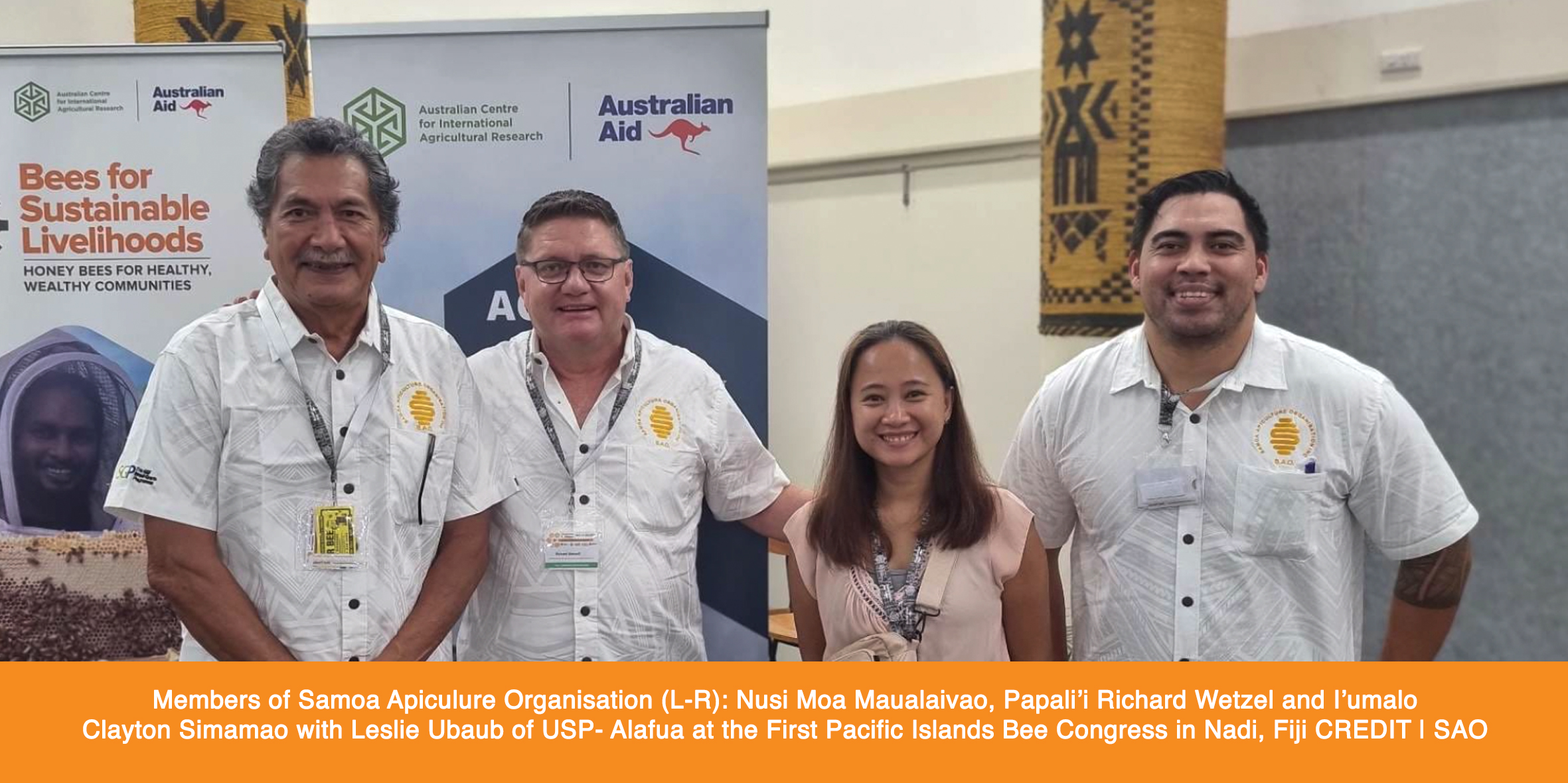May 2023
Challenges & Solutions

Samoa is witnessing a significant revival in its beekeeping industry as the newly formed Samoa Apiculture Organisation Inc (SAO) takes on the task of rejuvenating the sector. The decline in beekeepers, apiaries, and hive numbers over the years has prompted the need for concerted efforts to restore the industry.
The history of beekeeping in Samoa dates back to the introduction of honeybees, believed to be Black European bees, by early settlers or missionaries between 1860 and 1960. The Avele College received two nucleus colony hives from Mr P.C. Muir of Auckland, New Zealand, in 1963, which laid the foundation for beekeeping in the country. However, the industry faced subsequent challenges.
“From 1970 to 1989, Mr George Kelsall imported 40 colonies from New Zealand, which were later acquired by Roma International. The Samoan American Bee Company, as it came to be known, experienced growth with over 900 colonies and a processing factory in Vaivase. Unfortunately, the company was abandoned by 1989, leading to a decline in the industry,” says SAO President Papali’i Richard Wetzel.
Further setbacks he said occurred in the early 1990s when severe cyclones ravaged a significant portion of the bee hives.
“Efforts were made to restore the population by importing Queen Bell Cells from selected Italian Breeding stock in New Zealand. However, the “Bee and Bee Product Prohibition Order 1999” restricted the import of bee products under the Customs Act 1977.”
Recognizing the urgency to address the declining state of beekeeping, disease surveys were conducted in 2005, 2009, 2012, and 2014, revealing the challenges faced by the industry. In response, the SAO was established in 2022 with a mission to revive the bee industry and raise awareness about the importance of bees in ecosystems and agriculture.
I’umalo Clayton Simamao, a representative and beekeeper of the Samoa Apiculture Organisation, added that the beekeeping industry in Samoa currently faces various challenges, leading to a decline in bee colonies and honey production.
“The shortage of bee colonies poses a significant hurdle, our beekeepers are struggling to obtain colonies and often rely on splits or feral bees. Climate change has also had an impact on beekeeping in Samoa, disrupting natural foraging patterns and affecting productivity due to changing weather patterns, unpredictable rainfall, and extreme weather events.”
He said: “A lack of resources, including beekeeping gear and hives, restricts beekeepers’ ability to effectively manage their colonies. The use of pesticides, herbicides, and fungicides in agriculture is also affecting bee health and population.”
According to both Papali’i Richard Wetzel and I’umalo Clayton Simamao, limited knowledge and training opportunities further compound the challenges faced by beekeepers. Access to educational resources and training programs is crucial for adopting best practices, improving hive management, and enhancing honey production.
Papali’i Richard Wetzel and I’umalo Clayton Simamao are attending the 1st Pacific Islands Bee Congress in Nadi, Fiji on behalf of Samoa Apiculture Organisation (Inc) where they shared an overview of the Beekeeping Industry in Samoa.
